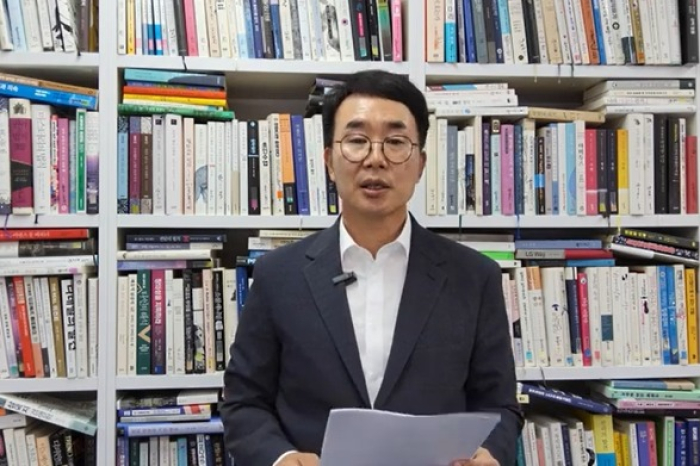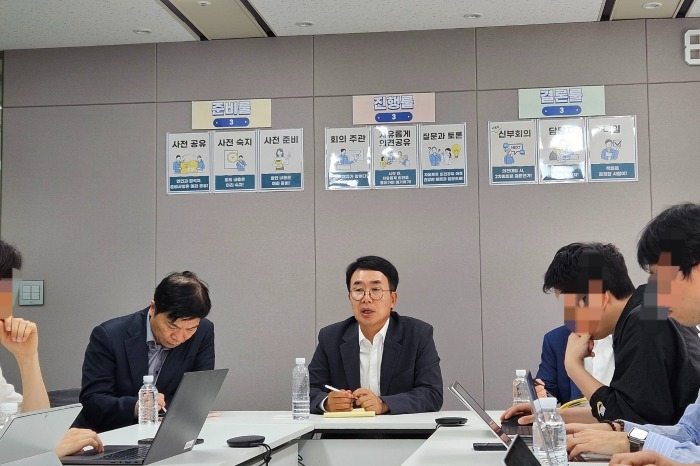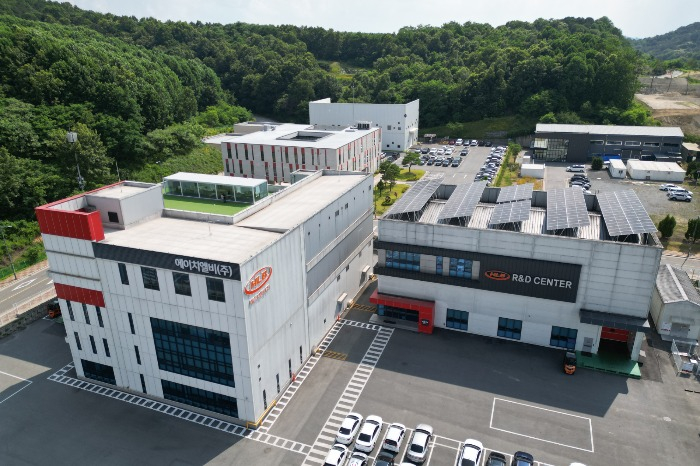Bio & Pharma
Investors dump Korean biotech HLB stocks on FDA rejection
The Korean biotech company received a CRL, rejecting approval of its novel cancer treatment after its first NDA
By May 17, 2024 (Gmt+09:00)
3
Min read
Most Read
When in S. Korea, it’s a ritual: Foreigners make stops at CU, GS25, 7-Eleven


Maybe Happy Ending: A robot love story that rewrote Broadway playbook


NPS yet to schedule external manager selection; PE firms’ fundraising woes deepen


US auto parts tariffs take effect; Korea avoids heavy hit


NCSOFT invests in US game startup emptyvessel



HLB Co. and its affiliate stocks tumbled on Friday on news that the South Korean biotech group’s highly anticipated new cancer treatment Rivoceranib failed to pass the first screening conducted by the US Food and Drug Administration (FDA).
Korea’s secondary Kosdaq market-listed HLB plummeted by the daily limit of 30% to 67,100 won ($49.41), and shares of all of its seven Kosdaq-listed units – HLB Therapeutics Co., HLB Pharmaceutical Co., HLB Life Science Co., HLB PanaGene Co., HLB BioStep Co., HLB Innovation Co. and HLB Global Co. – also nosedived 30%.
The HLB panic caused HLB to lose more than 3 trillion won in market capitalization, about one-fourth of its previous value, as well as more than 5 trillion won in total market cap when including seven other HLB companies, in one day. The market rout weighed on the Kosdaq as a whole, with the junior bourse closing down 1.7% on the day.
Investors dumped HLB Group stocks after HLB Chairman Jin Yang-gon announced on the company’s official YouTube channel Friday morning that the company received a complete response letter (CRL) from the FDA earlier in the day about its new drug application (NDA) for the combination therapy of Rivoceranib and Camrelizumab.

Rivoceranib is a new drug developed by the Korean biotech company to treat liver cancer, and Camrelizumab is an anti-cancer treatment developed by Jiangsu Hengrui, HLB’s Chinese partner.
NOT OUTRIGHT REJECTION
The FDA issues a CRL to notify disapproval of a new drug in its present form after initial reviews. But this is not an outright rejection, explained Jin, adding that the company will resubmit a new NDA as soon as possible after addressing the deficiencies in the previous application.
Jin attributed the FDA’s rejection mainly to issues with Camrelizumab, such as the Chinese drug’s manufacturing and quality control processes, that are not issues with Rivoceranib.
“I have not had the chance to check the CRL the FDA sent separately to Jiangsu,” said Jin, adding that the Chinese partner’s addressing of earlier problems might have failed to meet the FDA’s requirements.
Another issue the FDA has raised was its incomplete medical due diligence of the drugs’ clinical trials due to the ongoing war between Russia and Ukraine.
The FDA attempted to visit hospitals in those two countries where a high proportion of Caucasian patients went through clinical trials to confirm the efficacy of the drugs, but they could not get in due to travel bans, Jin explained.
UNCERTAINTIES REMAIN DESPITE CONFIDENCE
Jin expects Jiangsu Hengrui to swiftly address the problems, citing the Chinese pharmaceutical company’s proven track record of developing 17 globally approved medicines.

“There is nothing HLB must do now because there are no direct issues with Rivoceranic,” said Jin. “We will address the issues promptly with Jiangsu Hengrui through close consultation.”
The two partners applied for an NDA to use Rivoceranib and Camrelizumab as a combination therapy to treat liver cancer.
In October last year, the Korean drug developer’s US subsidiary Elevar Therapeutics acquired global rights, excluding Korea and China, for Camrelizumab to develop and market the combination therapy.
It remains to be seen whether their resubmission will get the FDA nod.
In April 2018, Celltrion Inc., a Korean biosimilar giant, received a CRL from the FDA for its breast cancer treatment Herzuma. After its prompt resubmission addressing the issues, the company got the green light on the drug in December.
This underscores the importance of the CRL response timeline.
If HLB fails to resubmit an NDA within one year after the reception of a CRL, or its solutions fail to meet the FDA’s requirements, its liver cancer treatment will be rejected permanently.
Write to Byeong-Hun Yang and Yoo-Rim Kim at hun@hankyung.com
Sookyung Seo edited this article.
More to Read
-
 Bio & PharmaHLB gets global rights to Chinese liver cancer drug
Bio & PharmaHLB gets global rights to Chinese liver cancer drugOct 17, 2023 (Gmt+09:00)
1 Min read -
 Bio & PharmaHLB signs with Japan's OSCL for exclusive supply of C-Trelin ingredient
Bio & PharmaHLB signs with Japan's OSCL for exclusive supply of C-Trelin ingredientAug 24, 2023 (Gmt+09:00)
1 Min read -
 Bio & PharmaHLB submits new drug application to FDA for Rivoceranib liver cancer drug
Bio & PharmaHLB submits new drug application to FDA for Rivoceranib liver cancer drugMay 19, 2023 (Gmt+09:00)
2 Min read -
 Bio & PharmaHLB starts Phase 3 clinical trials for ophthalmic disease treatment in US
Bio & PharmaHLB starts Phase 3 clinical trials for ophthalmic disease treatment in USApr 13, 2023 (Gmt+09:00)
1 Min read -
 Short sellingRetail investors test Celltrion, HLB shares as Korea’s GameStop
Short sellingRetail investors test Celltrion, HLB shares as Korea’s GameStopFeb 01, 2021 (Gmt+09:00)
3 Min read
Comment 0
LOG IN


